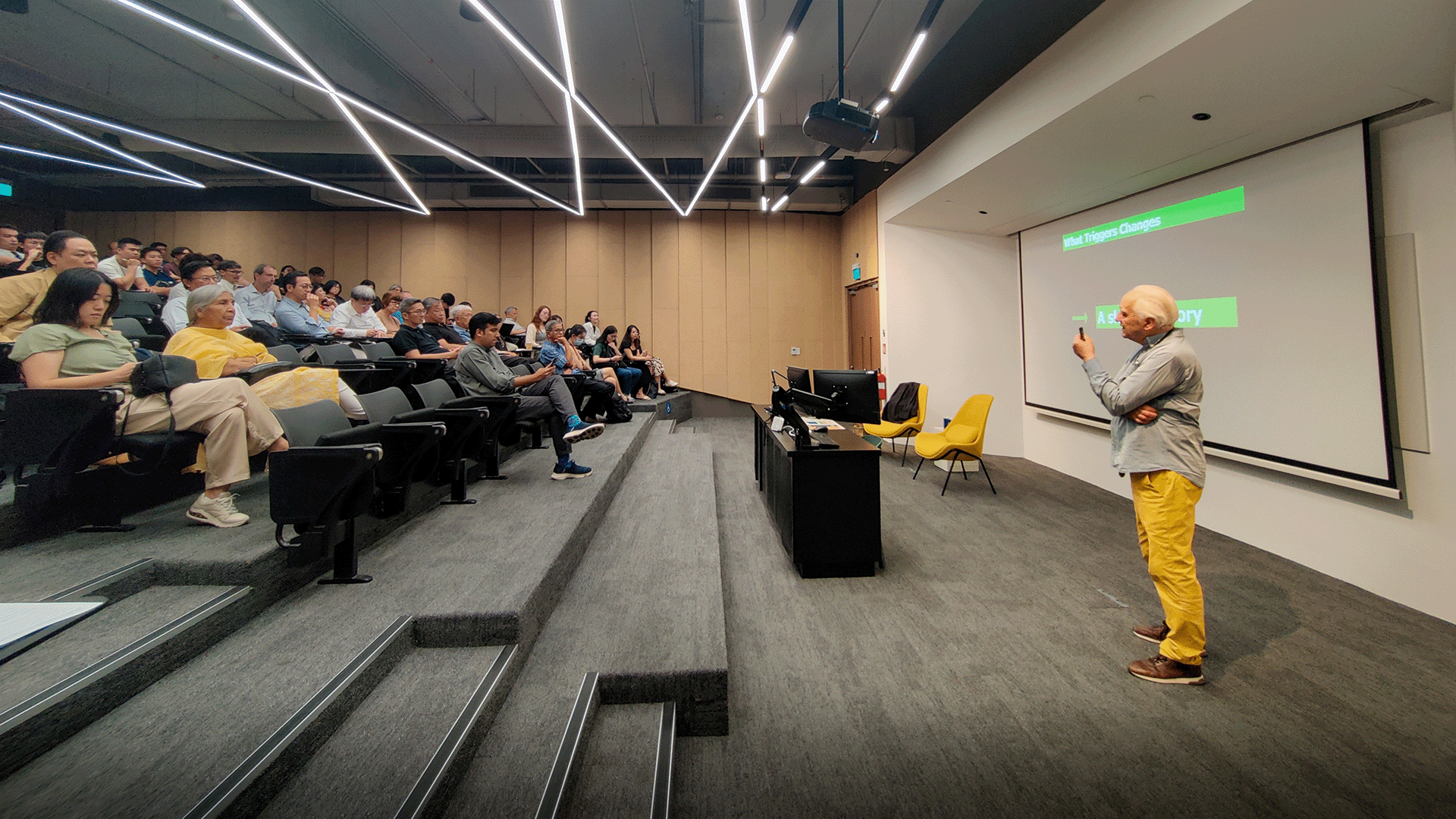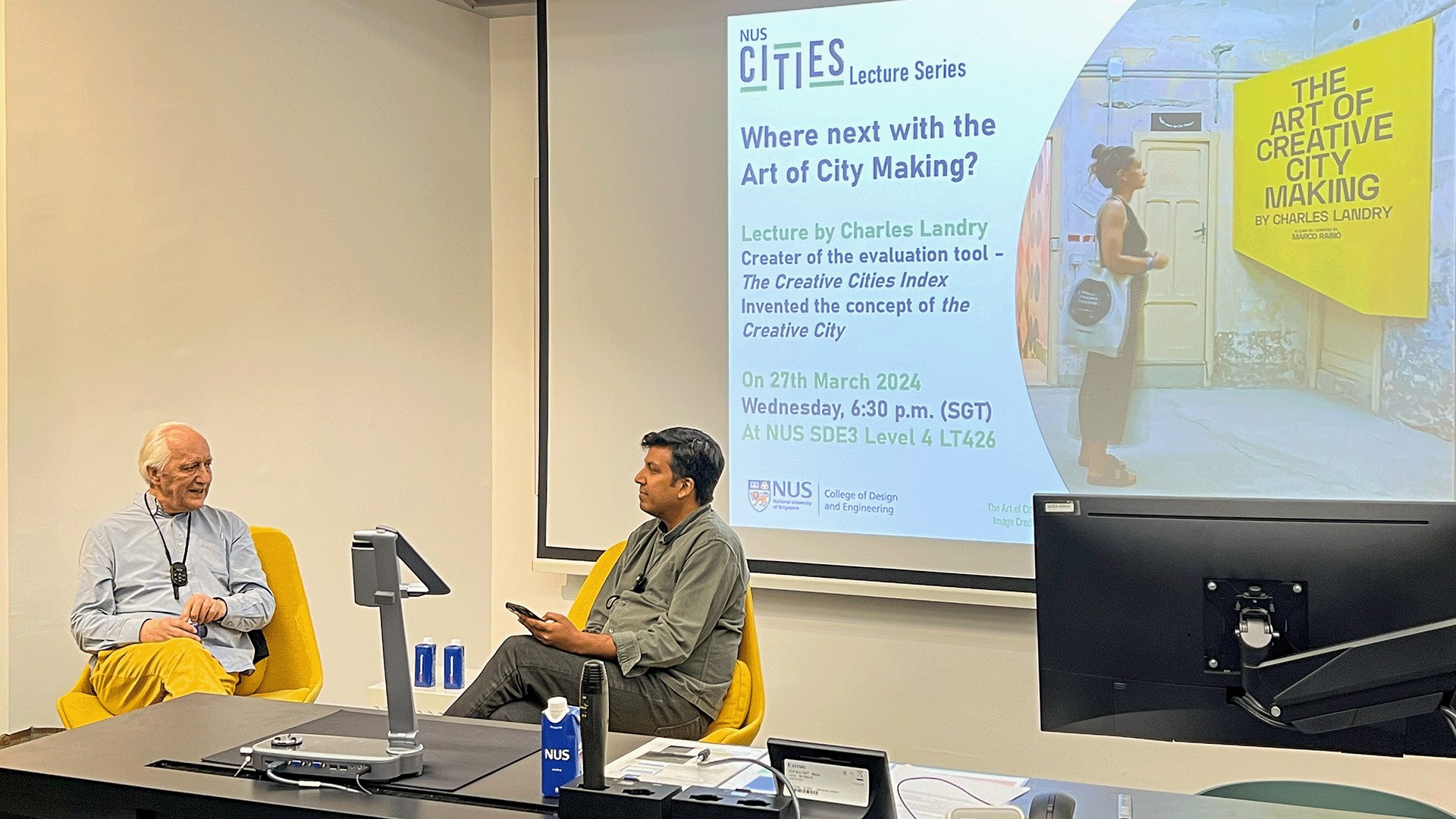
Mr Charles Landry, the man behind the concept of the 'Creative City', recently presented a guest lecture at CDE as part of the NUS Cities Lecture series.
He came up with the concept in the late 1980s, focusing on how cities can create the conditions for people and organisations to think, plan and act with imagination to solve problems and develop opportunities.
Regarded as an international authority on the use of imagination and creativity in urban change, Mr Landry’s evaluation tool – the Creative City Index, conceived together with the Basque Country and its main city, Bilbao, has been implemented in 25 cities in Europe and beyond.
In his lecture, Where Next with the Art of City Making?, Mr Landry took his audience through the issues faced by cities and the need to reframe past concepts to usher in a new era of cities, in what he termed as “the City and Culture 3.0”.
Watch the full lecture below:
Transitioning to the City and Culture 3.0
According to Mr Landry, contemporary issues facing the world’s cities include the feeling of “lifelessness in concrete” and the effects of gentrification. The rapid development of city neighbourhoods often results in an influx of more affluent residents, increasing rent and living costs for the original residents, who end up displaced.
To overcome these challenges, he said that cities will need to look inwardly and determine what they hope to achieve culturally before deciding on their approach to these challenges.
“The soft is the hard – the soft things are the hard things to measure, to see, to value and so on,” he said. “Culture matters because it impersonates a form of insight that clarifies the complex.”
Mr Landry also spoke on the importance of curiosity in city making and how it can encourage imagination and the breeding of creative ideas and solutions.

Facilitating change
In his talk, Mr Landry spoke about the agencies of change and how cities can utilise these agencies to move forward.
Rather than relying on fear or hope to trigger change, one of the most straightforward ways, he said, is coming up with generative ideas, which often results in a chain effect, as one idea will naturally lead to another.
He also highlighted the importance of governance and leadership, which play a pivotal role in determining whether a city moves forward or remains stagnant.
“It boils down to leaders who say that it’s not okay to be okay to make that change and see the bigger picture,” he said.
The lecture also touched on “revaluing ‘value’ beyond the Gross Domestic Product”. He said that while such a model may prove to be financially successful - if it comes at the expense of social and creative capital, then it may not be efficient.
Mr Landry concluded by touching on the dilemma faced by cities and their governments, and the need to find the delicate balance between “doing it the right way or doing the right thing”.
The talk was followed by a Q&A session, moderated by Mr Anupam Yog, Managing Partner of XDG Labs.
Many in the audience, comprising NUS students and staff, asked Mr Landry for his views on cities in the post-pandemic world and how cities can continue to grow.
The city of Neom, in Saudi Arabia, was a particular topic of interest among audience members, who asked Mr Landry for his thoughts on this unprecedented city model and the potential implications on city making in the future.


